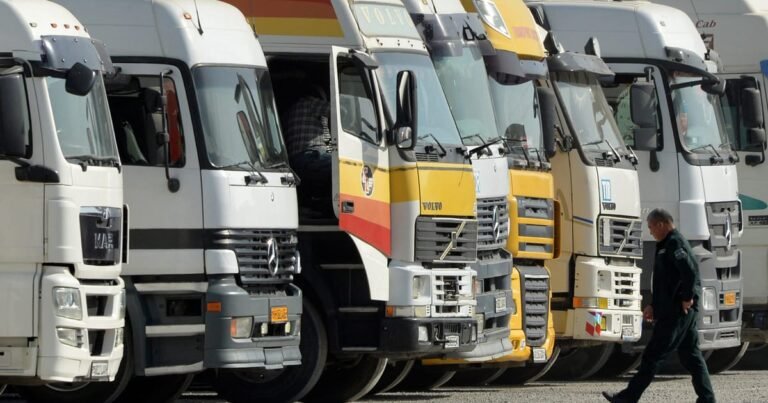Although many of the measures come into force this month, several countries are waging a legal battle before the Court of Justice of the European Union, which is expected to issue its ruling later this year.
Industry groups warn that the new rules, which cover drivers’ wages and place limits on deliveries within other countries, will limit capacity and make deliveries more expensive.
But transport workers’ unions say the package represents an opportunity for Europe to ensure fairer competition, improve working conditions for truck drivers and address the union’s growing driver shortage. Christina Tilling, head of road transport at the European Transport Workers’ Union, said road transport had become “artificially cheap” and now “the economic sustainability of the sector has stagnated”.
Here are some of the changes coming:
Equal pay
New legislation determining when truck drivers are eligible to receive the minimum wage in the country in which they work comes into force on Wednesday. It’s a tricky issue, because international drivers, by definition, always cross borders.
According to Raluca Marian, EU Advocacy Director at the International Road Transport Union, many countries are not ready for full implementation, which means that “at least in some countries, there will be – on a de facto basis – a tolerance period.” The groups called for leniency, warning that the rules could not be properly applied unless all countries set the level of wages in transport.





